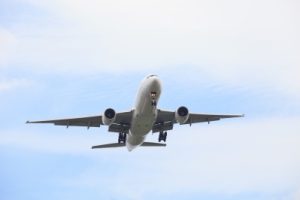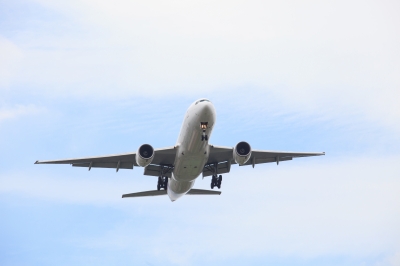
The Civil Aeronautics Board (CAB) has lifted the authority of airlines to impose a fuel surcharge on domestic and international cargoes, noting it is no longer needed since global oil prices are falling.
CAB Resolution No. 79, signed December 22, removes the right of domestic and international airlines operating to and from the Philippines to levy fuel surcharge on domestic and international cargoes.
CAB executive director Atty Carmelo Arcilla, in a text message to PortCalls, said the resolution is indefinite “until the need (to impose fuel surcharge) arises again.” He clarified that the order also covers existing surcharges that were granted to airlines before the implementation of the resolution.
CAB said that the airline fuel surcharge is not a government-imposed tax, but an optional fee imposed and collected by carriers to help recover fuel costs and stem losses from sudden hikes in fuel costs. A fuel surcharge is not part of the basic airfare and may be reduced or removed depending on the price of jet fuel in the market and the prevailing international practice.
Section 10 of Republic Act No. 776 requires that airlines file for approval from CAB before imposing charges such as fuel surcharge.
CAB said it called domestic and foreign airlines to hearings on December 5 and 18 to determine the propriety of maintaining fuel surcharges in light of the significant reduction in fuel cost.
Malaysian Airlines, during the hearing, said it had lifted its fuel surcharge, while several foreign carriers such as Hong Kong Dragon Airlines, Japan Airlines, All Nippon Airlines, and Cathay Pacific said they had reduced their surcharges. Some, on the other hand, had maintained fixed fuel surcharges since 2010.
However, some carriers, such as Jin Air, Korean Air, Qantas, and Etihad, reasoned out that while oil prices in the global market had been significantly reduced in recent months, the price of jet fuel remained relatively high. They added that fluctuations in oil prices were not the only factor for imposing a fuel surcharge because jet fuel prices were also covered by contracts that provided for a fixed price over a definite period of time.
CAB said, however, that with the “substantial and continuous decrease of fuel prices in the world market,” its Board deemed it appropriate to compel airlines to discontinue the fuel surcharge.
The Department of Trade and Industry, in a letter to CAB dated December 10, said records from the Department of Energy showed that the average retail price of diesel alone fell 21% to 26% in January 2014. From June to November, fuel price went down by more or less 25.21%.
On Jan 5 oil prices dropped to fresh 5-1/2-year lows of below $50 a barrel as worries about a surplus of global supplies and lackluster demand dragged on oil markets.
Dexter Yu, director of the Aircargo Forwarders of the Philippines, Inc., earlier told PortCalls that “this is good news for the industry as it makes airfreight more competitive and a more viable alternative.”
Yu added this is “good for the customers with the current port congestion problem and better for our country as well.”
At the height of the Manila port congestion, some exporters reportedly opted to ship via airfreight just to make sure their deliveries arrived on time. – Roumina Pablo
Image courtesy of khunaspix at FreeDigitalPhotos.net





